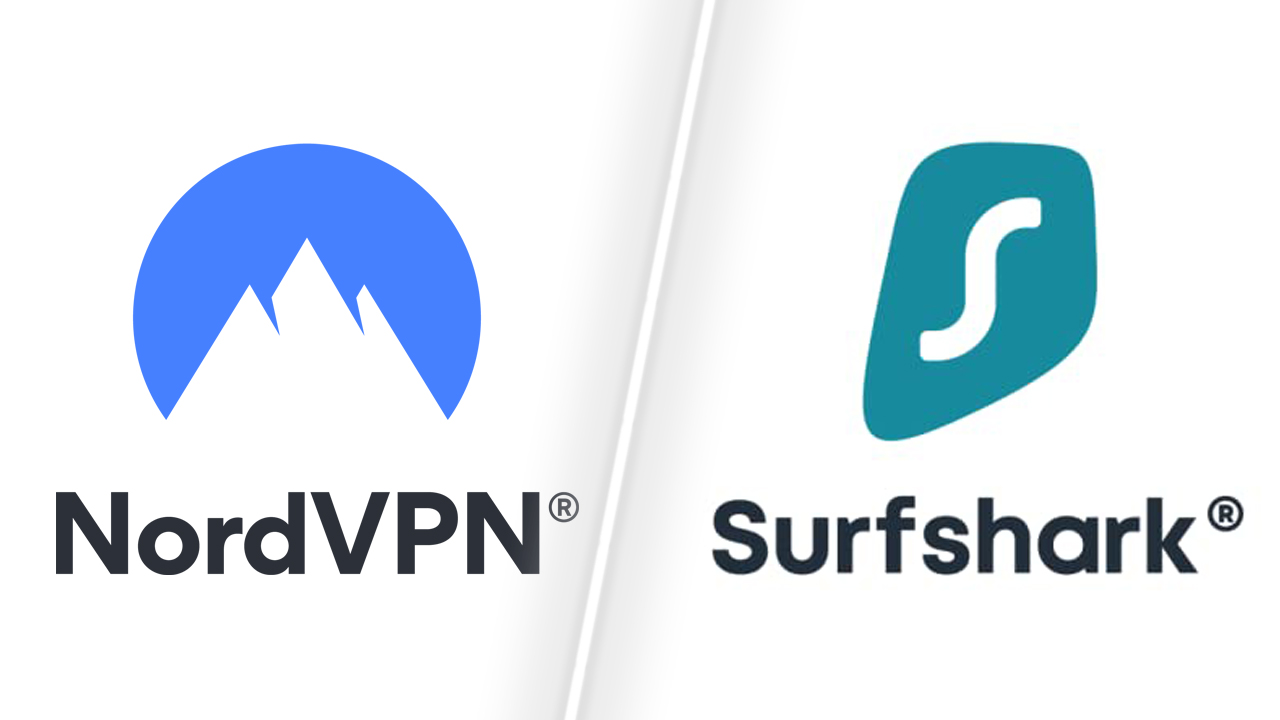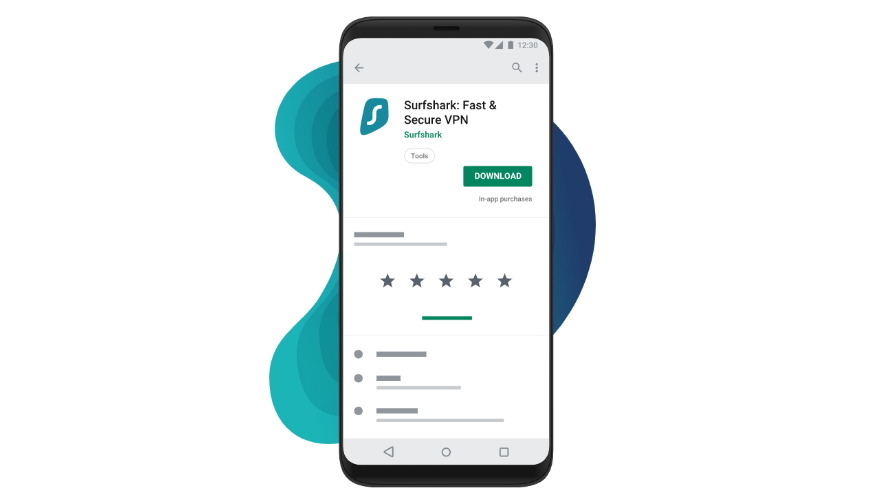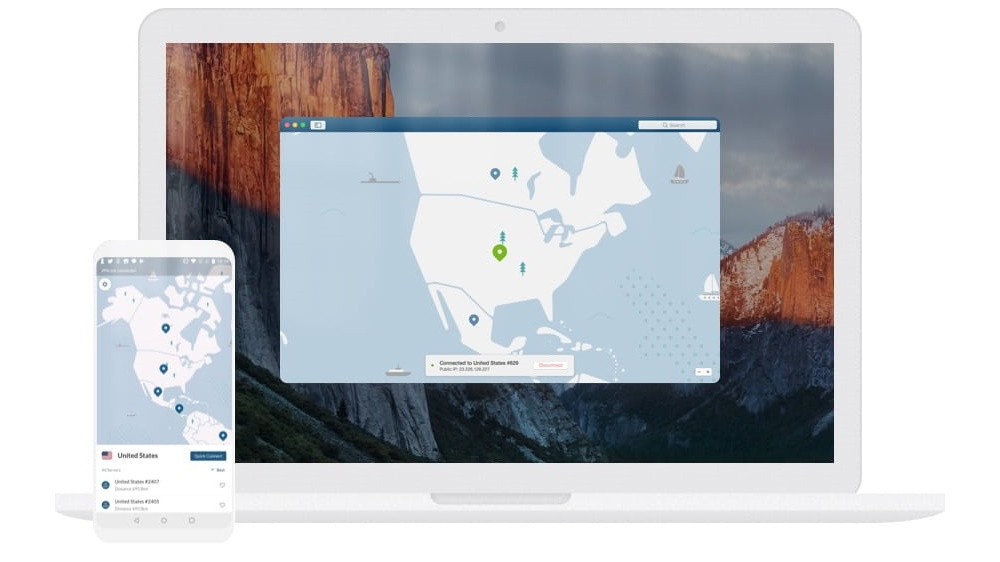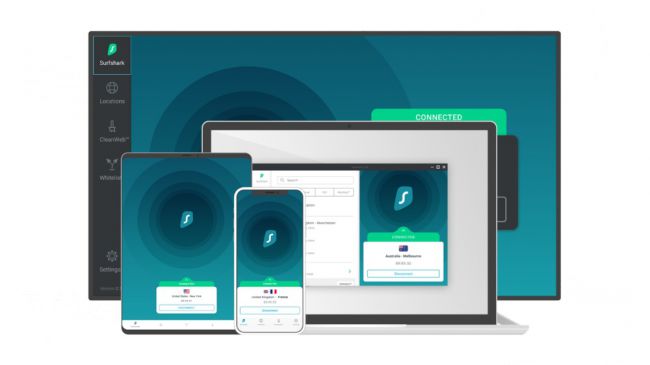NordVPN vs Surfshark: Which provider is best?
Can the biggest name in VPN hold off the plucky contender?

There are a lot of VPNs on the market these days and a huge amount of conflicting information if you want to pick the right one for you. But that's exactly what the Tom's Guide team is here for. We've taken two of the best VPNs around and compared all of their key features to help you decide. But who'll come out on top, NordVPN or Surfshark?
NordVPN is arguably the biggest name in the industry, topping many of our VPN recommendation lists. It's also a particular favorite among vloggers and YouTubers. It's my personal go-to for region-restricted streaming, and it delivers fast and reliable speeds that are more than up to the job, no matter how intensive your activities.
But Surfshark is no slouch, either, and packs a load of features into some of the most wallet-friendly prices around. Keep reading, and I'll dig into both providers and put them to the test to figure out which one offers the best experience.
NordVPN vs Surfshark at a glance
| Header Cell - Column 0 | NordVPN | Surfshark |
|---|---|---|
| Number of servers: | 6,800+ | 3,200+ |
| Server countries: | 111 | 100 |
| Maximum simultaneous connections: | 10 | Unlimited |
| Money back guarantee: | 30 days | 30 days |
| Lowest monthly cost: | $2.99 | $1.99 |
NordVPN vs Surfshark: Plans, pricing and trials
Price is one of the most important considerations when comparing products, especially in the middle of a cost of living crisis. Which is why I've compared the prices of NordVPN and Surfshark's plans first.
NordVPN's one-month plan costs $12.99. It’s substantially cheaper than Surfshark, but it's still a hefty investment for 30 days.
The NordVPN 12-month plan will set you back $4.59 a month, but you'll get an extra three months added to your plan for free.
If you pick the 24-month plan, it'll come in at $2.99 a month, with three months for free. Which is pretty good value for money, considering it’s one of the best providers around.
Surfshark's pricing plans follow the same pattern. You can pick up a one-month Surfshark plan for $15.45, which is pretty expensive.
However, if you’re prepared to commit to a longer subscription, the prices drop dramatically. A 12-month subscription comes in at $2.99 a month and includes an extra three months of coverage for free.
Opt for the 24-month plan, it’ll only work out at $1.99 a month. You'll also receive the bonus three months, bringing your coverage up to a total of 27 months, and making it easy to see why Surfshark is one of the best cheap VPNs around.
Both providers offer really good value for money, but Surfshark works out significantly cheaper if you're looking for a long-term plan. Plus you get some juicy extras thrown in for free.
NordVPN vs Surfshark: Security and privacy
Given that it’s probably the most important reason for using a VPN, we’ve done a detailed comparison between the security offerings from NordVPN and Surfshark.
NordVPN is one of the most secure VPNs around, boasting excellent encryption and some very useful features, such as Double VPN and Onion over VPN. The latter makes use of the encrypted Tor network for ultimate privacy, although this does come at the cost of slower speeds.
Surfshark also performs well, with its own MultiHop tech that functions much the same as Nord's Double VPN. You won't be able to route through the Tor network, but Surfshark does offer HackLock and BlindSearch, which help protect your online identity.
Both providers offer a selection of protocols for you to tailor your experience. NordVPN supports OpenVPN, IPSec/IKEv2, NordLynx (Wireguard), and SSTP, while Surfshark supports OpenVPN UDP & TCP, L2TP, IKEv2, WireGuard, and Shadowsocks, so you’ve got plenty to choose from.
However, if there's one thing that gives NordVPN the edge, it's the routine independent audits NordVPN undergoes. This means that the VPN allows an impartial third party to access its servers and source code, with the aim of confirming privacy policies and finding vulnerabilities.
Surfshark, meanwhile, underwent an audit by Deloitte in January 2024, verifying that the claims made in its no-logs policy are true. It'll take a while until it has caught up with the number of independent audits that NordVPN has undergone, but it's certainly a good start.
NordVPN vs Surfshark: Performance
Great connection speeds are a vital component of any VPN. After all, the most robust privacy in the world is no good if it slows your browsing to a crawl. We tested both NordVPN and Surfshark on a 1 Gbps line in the UK and US to get a good overall picture of each provider's performance.
In truth, there’s really not much to separate the two. They both maxed out at 950 Mbps, so everything remained super speedy while I was connected. These were the top speeds we got while using Surfshark’s WireGuard protocol and NordVPN’s NordLynx protocol.
When using OpenVPN, Surfshark definitely came out on top, delivering speeds of 460 Mbps versus NordVPN’s 173 Mbps.
We’ve tested a lot of VPNs and these are the two fastest VPN providers around. On typical connections, both will perform identically. But overall, Surfshark has got to be the fastest VPN we’ve ever tested. Still, NordVPN comes in still a very credible second place, delivering fast and reliable speeds.
In short, you won’t go far wrong with either of them, but if you want the fastest solution on the market, opt for Surfshark.

NordVPN vs Surfshark: Streaming
Surfshark wears its abilities as one of the best streaming VPNs on its sleeve, guaranteeing access to 14 Netflix libraries. This bodes well, as claiming this as a selling point means it's obliged to keep the service up.
NordVPN is also a reliable choice for streaming. In our testing, it accessed every Netflix library we tried. However, other streaming services weren’t quite so easy to unblock.
When testing BBC iPlayer (often even more difficult to unblock than Netflix), NordVPN came unstuck. An article on Nord’s website advised us to use the browser extension, and that did get us in, but we'd rather just use the app. It was the same story for Amazon Prime, too.
Surfshark, however, accessed iPlayer and Prime the first time we tried it, and it's for that reason that Surfshark comes out on top in this category.

NordVPN vs Surfshark: Torrenting
Using one of the best torrenting VPNs is a must if you're sharing P2P, so which of these two is better at protecting your torrents?
Both services support P2P traffic on some servers, and have the ability to detect if you're torrenting and switch you to a suitable server if you're not already connected. They also have a built-in kill switch and the ability to split-tunnel, which definitely comes in handy.
However, NordVPN's wider range of servers (at the time of writing it's got 6,800+ compared to Surfshark's 3,200+) means that you may be more likely to find a fast server that supports P2P in the location of your choice.
When testing them out, they were pretty evenly matched. But if having plenty of servers is high on your list, NordVPN takes this one.
NordVPN vs Surfshark: Apps
Seeing as most users will access their VPN via the app, it's important that they're easy to navigate, and packed with helpful features. That being said, it’s down to your own personal preference, so it's important to take our assessment with a pinch of salt and consider what you'd prefer to use.
On desktop, NordVPN's layout is clean, intuitive, and immediately recognizable. The map interface isn’t necessarily that helpful but it can be useful for quickly selecting a country without scrolling through a list. Naturally, it can get a bit cramped in central Europe, though. You're best off ignoring the map entirely on mobile, as it isn't much good on smaller screens.
In terms of features, it's super simple to change settings on both desktop and mobile, and everything is totally plug-and-play.
Surfshark's apps are even simpler, forgoing a busy interface in place of a server list. While you'll still be able to change settings easily, if we had to pick a fault it'd be that Surfshark's apps are a tad too simple.
However, this is really down to personal taste, and both VPNs provide high-quality, stable, usable apps that are compatible on almost all devices.

NordVPN vs Surfshark: Support
It's a bit of a labyrinthine journey to locate NordVPN's knowledge base of guides and articles. But once you've found them, the content is detailed and helpful. If you were to sign up for a Nord subscription, we'd suggest bookmarking the hub page so you don’t have to trawl through the site to find it again. After all, you don’t want to have to deal with searching for a hard-to-find help guide when you’re struggling with an issue.
Surfshark's bank of guides is very similar in both quality and quantity, with excellent articles that should cover most queries.
However, for most users, live chat will be the most useful support feature. And luckily both VPNs have helpful operators available 24/7 who are knowledgeable and seem to be able to solve the majority of problems in a pretty fast and efficient manner.
While the staff working for both providers have a tendency to seem like they're following a script (and let's face it, they are), they are willing and able to stray away from their predictable spiel to deliver personalized help and advice. In short, there's no clear winner here. Both providers offer excellent and almost identical support.
NordVPN vs Surfshark: Which is better?
Both NordVPN and Surfshark provide premium services that are easily two of the best providers on the market.
If you're looking for total anonymity, NordVPN's independently audited no-logs policy is a real selling point, and it might just sway your decision. Plus, with prices starting at just $2.99 a month, it's not bad value, either.
If you're looking to stick to a stricter budget though, Surfshark is quite simply the best bargain VPN on the market. You'll get an impressive number of in-depth features, along with fast speeds and reliable streaming for just $1.99 a month.
NordVPN and Surfshark have been ranked first and second respectively in our best VPNs guide. So if you want to sign up for the best VPN on the market, NordVPN’s stronger security makes it our number-one pick. But if you want a great-value option, Surfshark is a truly excellent alternative.
How we test VPN services—our review methodology
When it comes to reviewing VPNs, there’s no substitute for hands-on testing by a team of experts. That’s why we have adopted an end-to-end approach, breaking down every aspect of each provider to help you pick a tried-and-tested solution that will work for you. We start at the very beginning of the sign-up process by visiting the provider’s website. Here we assess the privacy policy, the marketing claims, the support materials, and any intrusive tracking cookies.
This provides us with an idea of how serious a provider is about safeguarding your data before we even get into the VPN itself. After all, we’d see it as a definite red flag if a VPN that claims to protect your data is attempting to sell off all of your data to third parties before you even get as far as downloading the app.
Next, we sign up and download the app (anonymously, of course). We test the VPN app on all the platforms on offer to make sure they work as advertised on iOS, Mac, Windows, and Android. We look carefully at feature parity across the different apps, as often mobile apps often don’t quite match up to their desktop counterparts.
Then we start getting to grips with the VPN itself. We test out each protocol and run speed tests, check for data leaks, and run through an extensive list of streaming services to see which ones get blocked.
Finally, we take stock of all of the information we’ve collected about the VPN to make a final judgment on it, and decide how it compares to other providers on the market: Is it worth the money? Is it secure? Does it have any features that make it stand out from its competitors?
There are plenty of VPNs out there, but there are only a few that we are happy to recommend. So if a VPN has made it into one of our best buy lists, you can be confident that it has undergone extensive testing and performed well.
We test and review VPN services in the context of legal recreational uses. For example: 1. Accessing a service from another country (subject to the terms and conditions of that service). 2. Protecting your online security and strengthening your online privacy when abroad. We do not support or condone the illegal or malicious use of VPN services. Consuming pirated content that is paid-for is neither endorsed nor approved by Future Publishing.
Get instant access to breaking news, the hottest reviews, great deals and helpful tips.

Mo has been rigorously testing, reviewing, and analyzing VPN services at Tom’s Guide for more than five years. He heads up the three-person Tom's Guide VPN team, and is passionate about accessibility: he believes that online privacy should be an option that’s available to everyone. NordVPN and ExpressVPN are the products he uses most on a daily basis, but he experiments weekly with all the top services, evaluating their privacy features, connection speeds across various protocols, and server reliability – among other things – so that he can make confident VPN recommendations that are backed by data. To see his latest advice, head over to Tom’s Guide’s best VPN and best free VPN guides.
- Catherine HileyFreelance Writer
